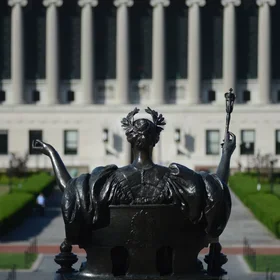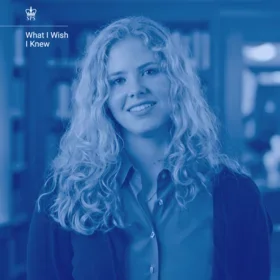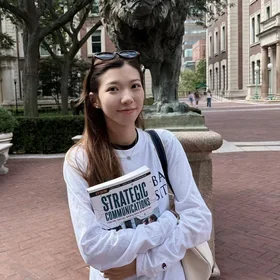Most organizations are not run by robots. At least, not yet. They are run by people, and human capital needs to be cultivated.
That’s what Columbia University’s Master of Science in Human Capital Management (HCM) is all about.
Consider a case study commonly used by Steve Safier, program director and lecturer in Human Capital Management: Two women start a company and are looking to expand. However, as the company grows larger, they encounter an increasing number of challenges with their employees. Leadership is not aligned and does not work together. Employees are demotivated, confused, and unhappy. The company also needs to ensure fair compensation and effective performance management.
Safier uses this case study to explain strategic human resource management: “We teach people to consider many different aspects of working with employees—with people who have a job to do and have personal needs and goals as well. What do we need these individuals to do and feel to be successful? How do we bring together all the tools we have in HR to make that happen? And, how do we measure if we’re successful from the business’s point of view and from the employees’ point of view?”
In the HCM program, students learn how to help organizations hire, engage, and motivate employees to help those companies flourish.
“That means stepping outside one's own human resources discipline and learning how to support a business by connecting the dots across all the ways we manage people in an organization,” Safier said. “It involves becoming a strategic human resources professional.”
One of the most important things in the program is learning from professionals, lecturers, and notable guests. This past year, HCM program students had the opportunity to connect with more than 75 guest lecturers who are leaders in the field.
“Through the HCM program, I met the chief HR officer at a major entertainment company. He came to my Integrated Talent Management class and shared how the company is changing norms around HR and building culture, “ says alum Naomi Haile (’22SPS, Human Capital Management). “I was fascinated by his story, the work that he was doing, and his journey before he joined the company. I reached out to him after and he ended up being a guest on an episode of my podcast.”
Jennifer Diaz, director of DEI Leadership Development Programs at a global bank, is a current student in the program. She was hesitant about the idea of working full-time while going to school, but now “it feels like the greatest advantage,” she says. “One of the biggest benefits of going through the program while employed is that I’m able to apply what I’m learning in the classroom to what I'm currently encountering in my work.”
One of the topics discussed in the program that she said she has integrated into her current role is actively considering how the company aligns HR strategy with its business strategy: How do we hire, develop, and motivate people to solve for the needs of the business?
“Ensuring that resources are allocated to where they are needed at the right moment has been another example that has helped me approach the program more thoughtfully and relate it to my current role" Diaz said.
Lauren DeVito, a current student who works as a recruiter at a major multinational technology company, said the chance to connect and interact with committed, experienced faculty members and guest speakers who are active in the field has broadened her thinking in a variety of ways. Similarly, speaking with and learning from other students about their organizations opens her mind to new approaches.
“When you work for one organization, you only know that way of doing things, which is not necessarily bad, but it's hard to know how other companies work,” she says. “Hearing different perspectives is definitely important and helps us all be better and advance our careers.”
About the Program
The Columbia University M.S. in Human Capital Management program prepares graduates to be world-class HCM strategists able to address changing needs in building and motivating talented, engaged workforces in the private, public, academic, and not-for-profit sectors. The program is available part-time, full-time, on-campus, and online.


